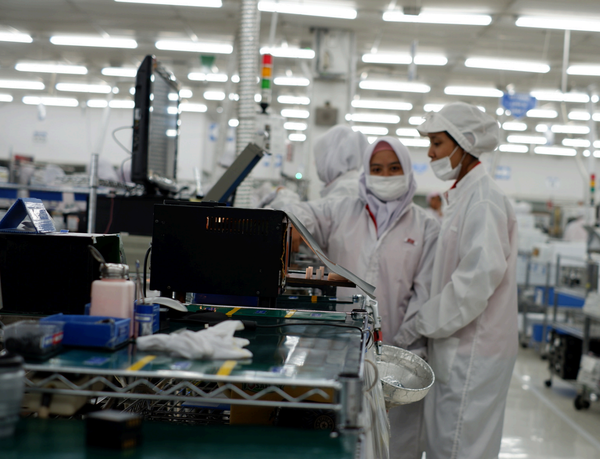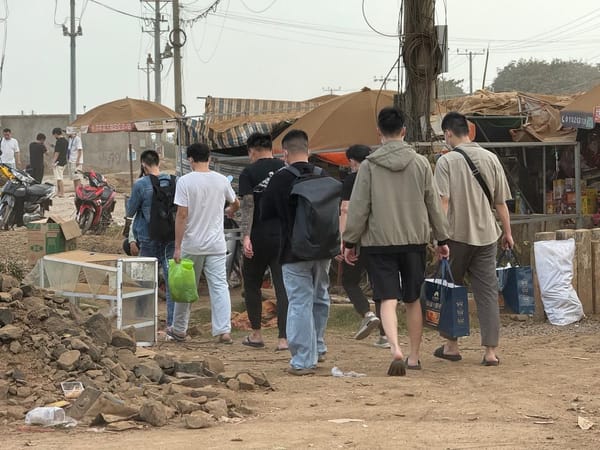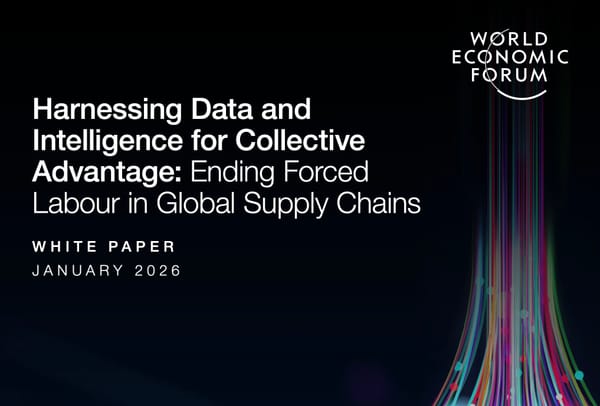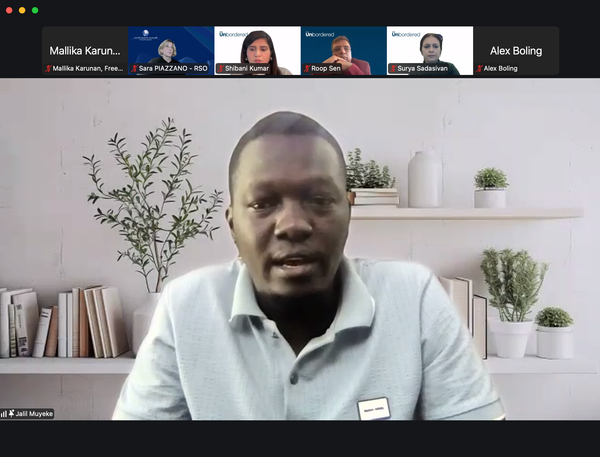Field insights highlight the uneven effects of recent funding disruptions
Frontline groups spotlight the unequal impact of ongoing funding challenges, ICAT underscores the connection between trafficking and organized crime, and UHRP warns that expanding EU-bound air cargo routes risk embedding Uyghur forced labour.
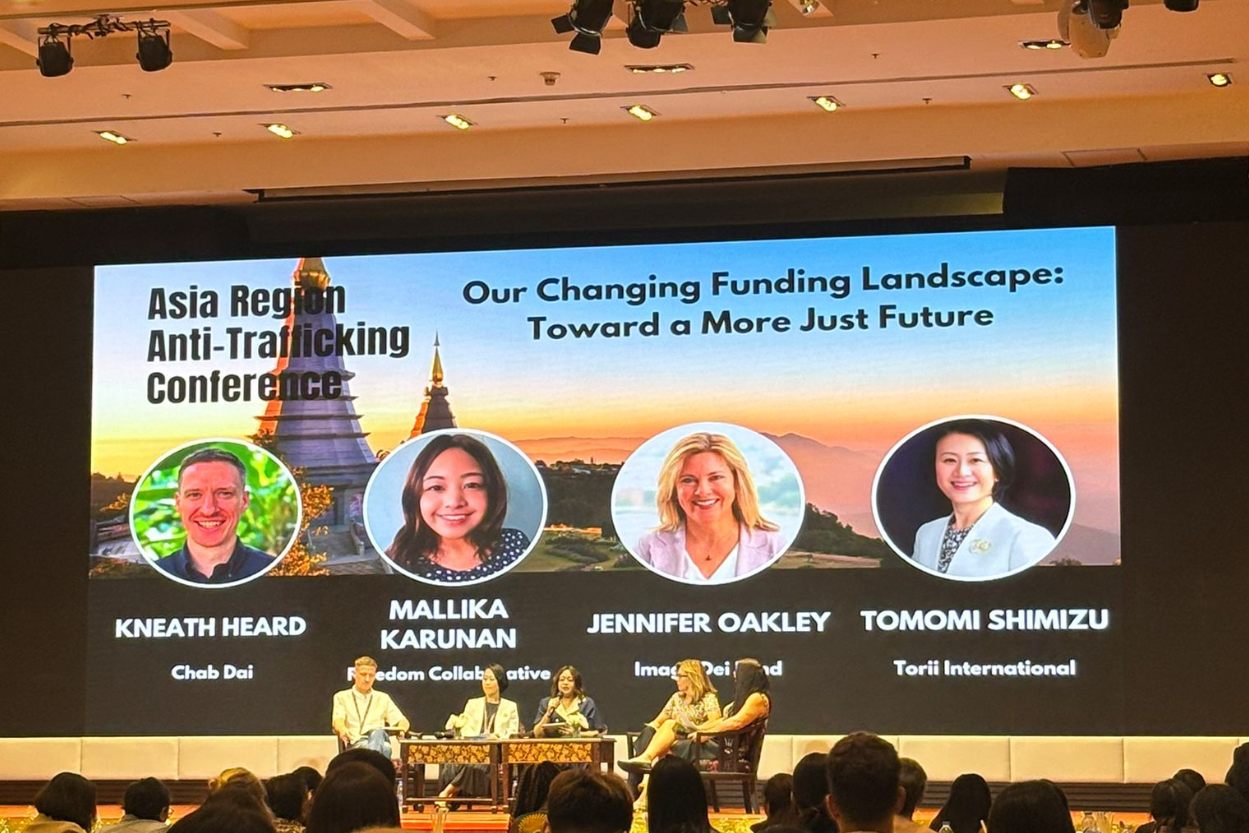
Six months after the USAID stop-work order, its ongoing impact continues to highlight significant challenges in the anti-trafficking sector, especially among grassroots and survivor-led organizations. These issues were prominently discussed at the recent 2025 Asia Region Anti-Trafficking Conference (ARAT), held in Chiang Mai, Thailand, where Freedom Collaborative joined other organizations to examine the evolving funding landscape and advocate for more equitable and sustainable approaches to funding. During a dedicated panel session, we shared insights from frontline partners and emphasized the need to rethink support for smaller community-based groups that are often the first to feel the effects of external shocks.
Freedom Collaborative has been actively documenting and highlighting the effects of the funding crisis following the withdrawal of U.S. support. In a series of statements and reports, we have drawn attention to the urgent threats to community-based programming and the long-term risks to inclusive and survivor-centered support systems, particularly in regions where national funding is limited and access to alternative sources remains scarce. These publications have also emphasized the broader implications of sudden funding loss, not only for service continuity but also for policy engagement, sector coordination, and stability within affected communities.
During the panel, we joined representatives from Chab Dai, Imago Dei Fund, and Torii International to share our experiences and reflect on the wider consequences of the funding crisis. We spoke about the realities of the USAID funding fallout, including the way in which many smaller grassroots organizations were affected with little to no warning, leading to the abrupt loss of critical services and programs. In Thailand, one partner organization learned of the defunding through social media rather than official channels and was later pressured to remove public posts. Fear of retaliation silenced many local civil society groups, preventing them from sharing their challenges or advocating for themselves.
The crisis exposed not only operational vulnerabilities but also systemic inequalities. While larger organizations may have the resources to absorb disruptions, smaller groups often disappear quietly or cease operations without notice. The assumption that every organization should have been prepared for a crisis of this scale overlooks the realities faced by groups founded and led by survivors, asylum seekers, and refugee communities, many of whom operate without access to financial forecasting tools or diversified funding streams.
Panelists noted that we are now at a critical juncture in which other governments are beginning to mirror U.S. foreign aid reductions. This emerging trend is leaving frontline and community-led initiatives under-resourced, just as demand for services is rising. As trafficking risks grow across migration routes, in conflict settings, and through increasingly complex exploitation schemes, the organizations closest to affected communities are facing mounting pressure with fewer tools and less funding. In places where USAID was the only significant source of long-term support for anti-trafficking work, few viable alternatives have emerged to fill the gap.
Panelists also spoke about the importance of staying adaptive in the face of ongoing challenges. Despite the hardships, it was noted that this period has been an opportunity to actively re-strategize, reaffirm core strengths, and stay grounded in what matters most. Organizations were encouraged not to be discouraged by narratives of failure or inadequacy, but instead to lean on their networks, remain open to new ways of working, and take strategic risks, even if that means moving slightly beyond their original field. While some may have weathered the storm, many are still recovering from its aftermath, and now is a time to speak openly, support one another, and move forward together.
We are incredibly grateful to our partners for their trust, solidarity, and continued engagement, and for the shared resilience as we advocate for more just and inclusive support for vulnerable communities.
Here’s a roundup of other noteworthy news and initiatives:
On the World Day against Trafficking in Persons, the Inter-Agency Coordination Group against Trafficking in Persons (ICAT) emphasized the link between trafficking and organized crime, noting its implications for security, governance, and human rights. ICAT calls for coordinated, evidence-based, and gender- and age-sensitive responses to address human trafficking across all contexts.
A new report from the Uyghur Human Rights Project (UHRP) has uncovered the rapid expansion of air cargo routes connecting Ürümchi with over a dozen cities across Europe. This new trade corridor risks deepening Uyghur forced labour in European supply chains and complicates European commitments to end imports tainted by forced labour.
Tens of thousands of Cambodian migrant workers have returned from Thailand amid escalating border clashes and insecurity, often without support or resources. Now facing a deteriorating job market at home, they are at risk of further hardship as looming U.S. tariffs threaten large-scale job losses in Cambodia’s garment, footwear, and travel goods sector, where women make up the majority of the workforce.
The U.S. Ninth Circuit Court of Appeals ruled that a lawsuit against X (formerly Twitter) for failing to report known child sexual abuse material (CSAM) can proceed, marking a significant legal development for survivor accountability. The court found that X is not fully protected by Section 230 immunity in this case, allowing claims related to product liability and negligence to move forward.
A recently reopened case in Brazil alleges that hundreds of workers were subjected to forced labour, abuse, and trafficking on a Volkswagen-owned cattle ranch in the Amazon between 1974 and 1986. Based on a trove of documents preserved by a Catholic priest and new testimonies from survivors, federal prosecutors argue that the labour practices were systemic and that Volkswagen Brazil bears responsibility for the conditions on its property.
A fire has destroyed SafeHope Home, Canada's only long-term survivor-led residential program for trafficking survivors, displacing residents and highlighting the fragility of essential support services. The incident underscores a critical national shortage of specialized housing and the urgent need for sustained investment in long-term, trauma-informed recovery programs.
Hosted by STOP THE TRAFFIK, the 2025 Data to Disrupt Trafficking Awards celebrate individuals and organizations using data, technology, and collaboration to dismantle systems that enable trafficking and exploitation. Applications are open until 27 September 2025.

